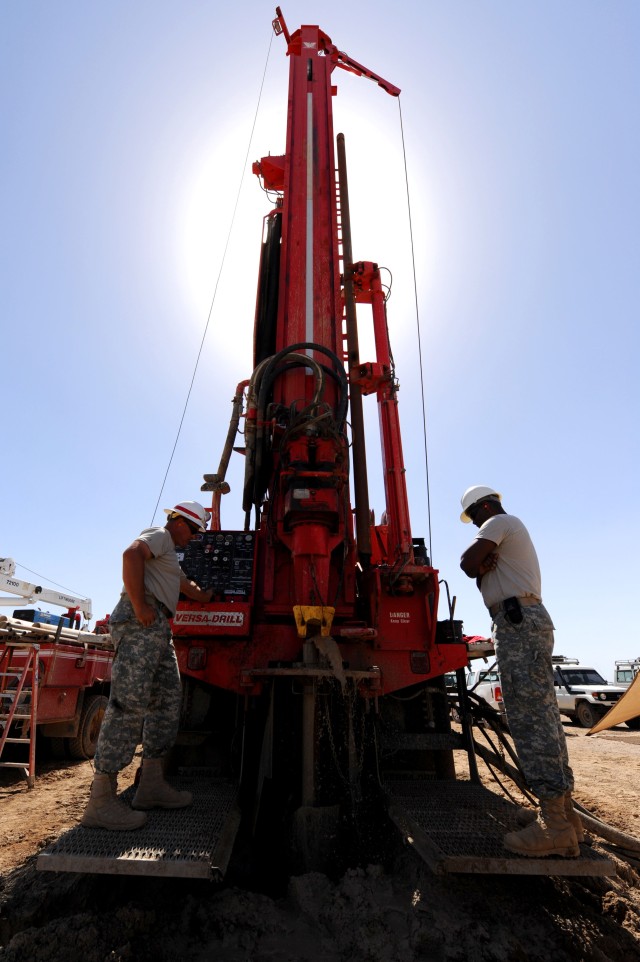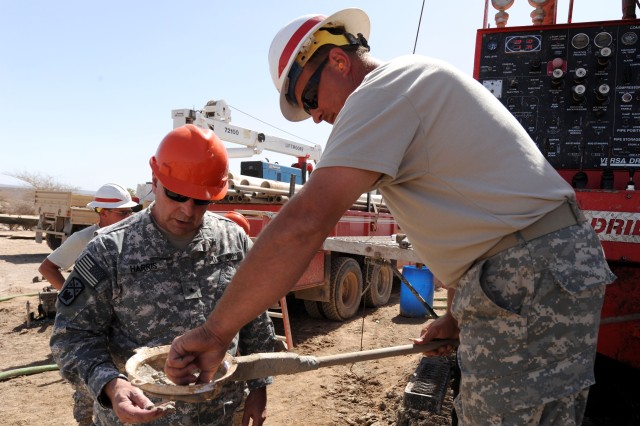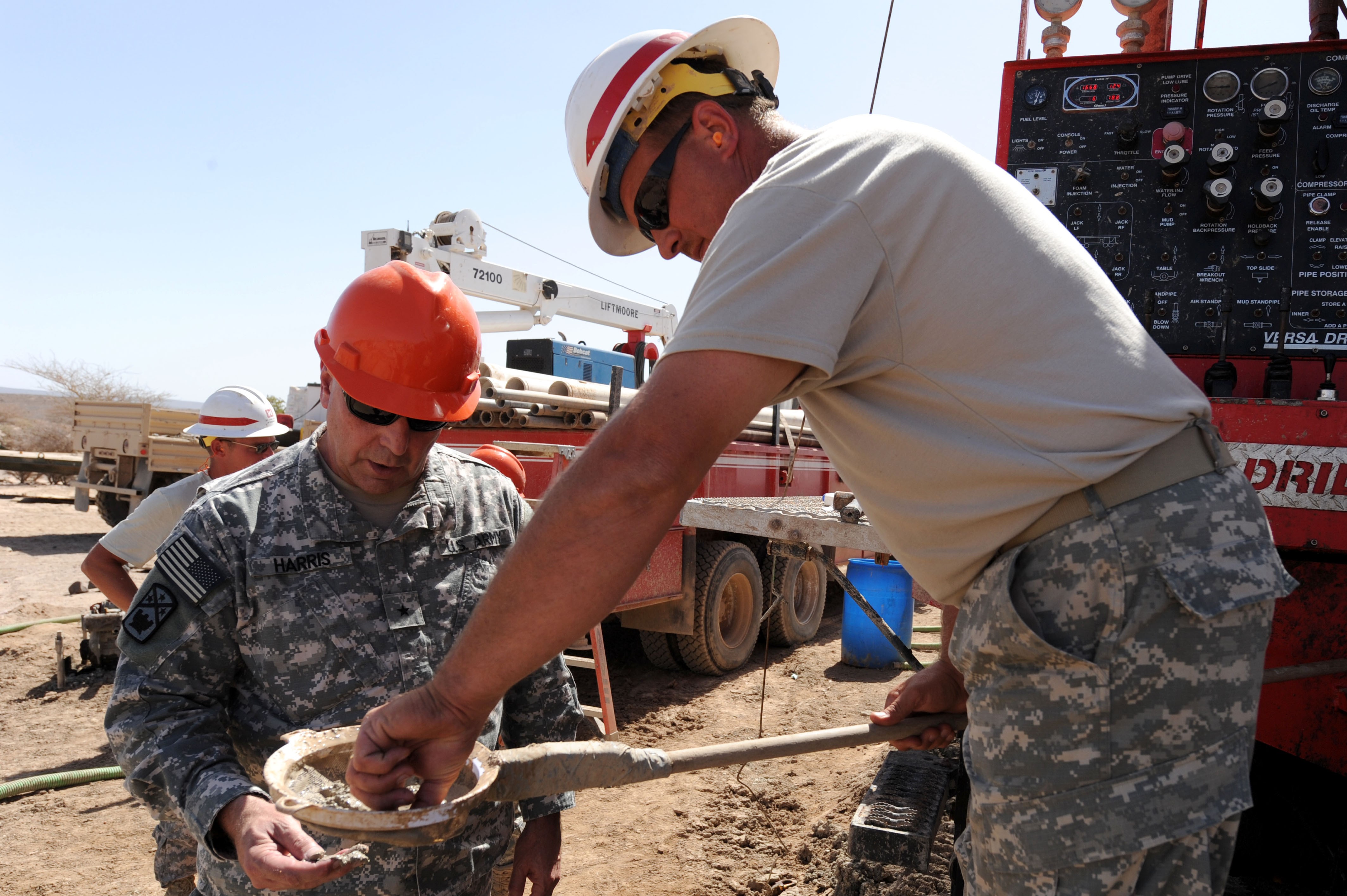DIKHIL, Djibouti - Soldiers of the Tennessee National Guard's 775th Engineering Detachment welcomed a friendly face to the Horn of Africa when their commander, Brig. Gen. Robert A. Harris, visited to see the living and working conditions of his troops on Feb. 20.
Harris spent the day touring the Dikhil region of Djibouti, where his Guardsmen have lived and worked since September. He saw first hand how his Soldiers are making an impact.
The 775th Eng. is a well-drilling unit and part of the 194th Engineering Battalion, which falls under the Tennessee Army National Guard from Jackson, Tenn. The detachments primary goal is to drill six wells for Djiboutian villages.
"Water is a valuable resource here in the Horn of Africa," said Staff Sgt. Timothy Michael, a driller assigned to the 775th Eng. "The Djiboutian people live simple lives, just trying to survive from day to day. The surface wells often carry contaminants that cause sickness and they dry up in the summer. They know that if we can drill a well that produces water year round, their lives will be more stable and water will be safer for their families to drink. They will be able to grow crops, feed their families and live where they want to. Without water, they are forced to move somewhere if they want to survive"
Harris told his Guardsmen how important this mission is and how important it is to help the people of Africa.
"In Africa, water is everything. It equals life. They hold it very dear and precious. How blessed we are as Americans, and in turn, we should honor that by doing something positive over here."
On the one-day trip, he visited one well site that produces salt water. Michael, using his education to help solve the problem, began troubleshooting the well and called back to engineers in the U.S. for opinions. Michael has been with the 775th since 1988. This is his third deployment, and his experiences have taught him how it's possible for an inland well to produce salt water.
"Most of the ground aquifers here produce salt water. This is unusable, so we have to find fresh water. There isn't much that we can do other than drill another well, more shallow and closer to the Wadi - a dry riverbed that is only wet during periods of rainfall," Michael said. "At this point, the community is using the well for washing clothes and bathing.
"We also have to finish the well and make it as easily maintainable as possible. Africans cannot just run down to the local market to get a replacement part if something breaks," Michael said.
The 775th EN is deployed in support of Combined Joint Task Force-Horn of Africa. The servicemembers of CJTF-HOA, headquartered in Djibouti Africa, employ an "indirect approach" to counter extremism. Through a strategy of cooperative conflict prevention the task force builds security capacity, promotes regional cooperation and protects coalition interests to prevail against violent extremist activities.
The 775th is scheduled to return to Tennessee in September.




Social Sharing